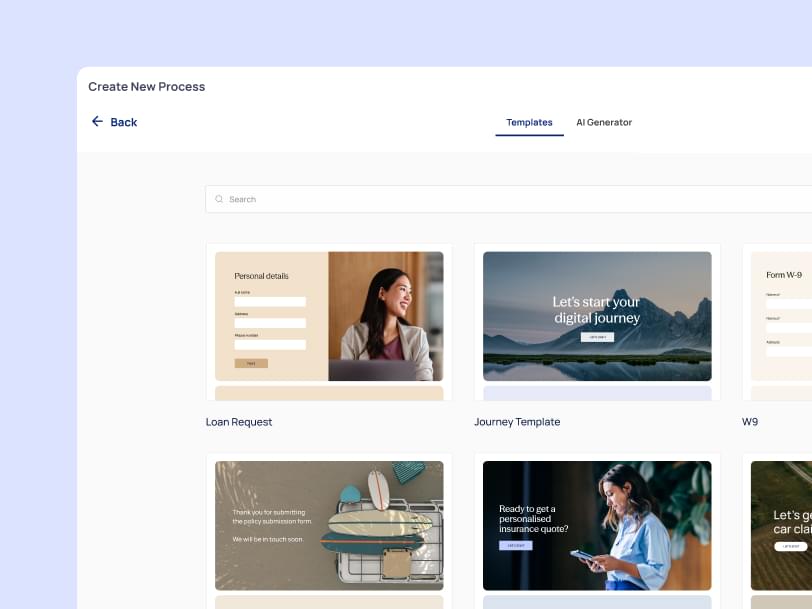The use of digital platforms in the healthcare sector are on the rise. These powerful tools, such as telehealth services, Electronic Health Records (EHRs), digital therapeutics, and wellness apps, are transforming how we view healthcare.
As we navigate the complexities of the 21st century, mental health emerges as a crucial aspect of overall well-being. In the post-pandemic era, there is increasing awareness that mental health requires as much attention as physical health.
Mental health coverage is all about ensuring everyone has access to the services and treatments they need to cope with mental health challenges. It's a noble mission, but unfortunately, it's still more of a dream than a reality in many parts of the globe, despite the rising wave of mental health issues.
The intersection of digital platforms and mental health coverage is a crucial topic to address. Imagine the magic that could happen if we merged these two worlds - digital platforms and mental health coverage. This fusion is not only exciting but downright necessary. As our reliance on technology grows and our understanding of mental health deepens, these digital platforms are stepping up to fill in the gaps. Yes, we're talking about a digital revolution in mental health, and you're part of it!
The Global Mental Health Crisis
Today's world is grappling with a mental health crisis of epic proportions. The World Health Organization (WHO) estimates that 1 out of every 4 people globally will be impacted by poor mental health or mental illness at some point in their lives. That's nearly two billion people, considering our current global population.
Depression alone is estimated to affect over 350 million people. More alarming is the fact that around 1 million people globally commit suicide every year, making it the second leading cause of death in 15-29-year-olds.
In high-income countries, 5 out of 10 people who require mental health support cannot access the care they need. In low- and middle-income countries, this number rises to 9 out of 10 people.
These stark numbers, however, only tell part of the story. The real impact of mental health conditions is profound and widespread, influencing every aspect of life for those affected and society as a whole.
Mental health conditions take a toll on people's daily lives. They affect a person's ability to function at work, in school, and in their relationships. The feelings of isolation and stigma associated with mental illness can be debilitating, leading to a vicious cycle of social exclusion and worsening symptoms.
But mental health isn't just an individual problem; it has significant societal implications as well. The economic impact alone is staggering, with the global economy losing about a trillion dollars every year due to productivity losses linked to depression and anxiety. Moreover, societies also bear the brunt of increased healthcare costs, higher school dropout rates, and escalated crime rates often associated with untreated mental health conditions.
This growing mental health crisis underscores the urgent need for comprehensive and inclusive strategies that not only address the treatment and prevention of mental disorders but also prioritize mental well-being for all. The potential benefits are immense, from improving the lives of billions of individuals to creating healthier, more productive societies.

The Role of Digital Platforms
Digital platforms have emerged as powerful tools in addressing the global mental health crisis. By leveraging the ubiquitous nature of technology, these platforms are revolutionizing how we approach mental health coverage, providing easier and more affordable access to care.
At their core, digital platforms offer a range of services tailored to mental health. They encompass telepsychiatry, allowing individuals to consult with mental health professionals virtually; digital therapeutics, offering online therapy methods like cognitive-behavioral therapy;
and wellness apps that help manage stress, anxiety, or sleep disorders. Furthermore, Electronic Health Records (EHRs) ensure seamless sharing of a patient's mental health history, facilitating a comprehensive and consistent approach to care.
These platforms not only democratize access to mental health services but also help remove the stigma associated with seeking help. By providing anonymous and remote access to care, they make mental health services more approachable, encouraging more individuals to take proactive steps in managing their mental health.
Benefits of Using Digital Platforms for Mental Health Coverage
The digital era has paved the way for extraordinary innovations in various sectors, and mental health care is no exception. By leveraging digital platforms for mental health coverage, we are opening doors to numerous benefits that can reshape how we perceive and approach mental health services.
- Accessibility: One of the most significant advantages of digital platforms is their ability to reach out to individuals in the farthest corners of the globe. No longer are mental health services limited to physical offices in urban areas. From bustling city dwellers to residents in remote rural areas, or individuals with limited mobility, everyone can have access to quality mental health services right from their digital device. It's like having a therapist in your pocket!
- Affordability: Traditional therapy sessions can often be quite expensive, deterring many from seeking help. However, digital platforms offer a more economical solution. With a multitude of online resources, apps, and telehealth platforms, individuals can access therapeutic services and support at a fraction of the cost of traditional therapy. It's a great way to ensure that mental health care is not just a privilege for the few but a right for all.
- Anonymity: Let's face it - despite the increasing recognition of mental health issues, a stigma still surrounds it. Even today, despite growing awareness, almost 9 out of 10 people with a mental condition experience stigma and discrimination. This can make it difficult for many individuals to seek help openly. Digital platforms provide a safe haven in this regard. They offer an anonymous space where individuals can seek help privately, allowing them to openly express their feelings and concerns without the fear of judgment or social stigma.
In a nutshell, digital platforms are turning the tide in mental health coverage. Their potential to increase accessibility, and affordability, and provide a sense of anonymity makes them a game-changer in the realm of mental health services. As we continue to embrace this digital revolution, we movecloser to ensuring everyone, everywhere, has the support they need to maintain their mental well-being.
Future Implications
The future of mental health coverage is likely to be deeply intertwined with the world of digital platforms. As we look forward, it's clear that these platforms have the potential to transform mental health services, shaping an accessible, inclusive, and proactive approach to mental health care.
In the future, we could see an integrated network of mental health services, where digital platforms allow for coordinated care, continuous monitoring, and early intervention. Imagine apps that can detect changes in your mood or sleep patterns, triggering a check-in from your therapist or a supportive message from a virtual coach. The fusion of artificial intelligence and health data could also enable predictive analyses, helping to flag mental health crises before they occur.
However, like any revolution, this digital transformation also brings challenges. Privacy and data security concerns loom large, with mental health information being particularly sensitive. There's also the risk of widening the digital divide if these services are not made accessible to disadvantaged or technologically challenged populations.
To address these challenges, it's crucial that digital mental health initiatives prioritize robust security measures, clear privacy policies, and transparency in data use. Additionally, efforts should be made to improve digital literacy and accessibility, ensuring that no one is left behind in this digital mental health revolution.
This is where the rise of no-code platforms, like EasySend, could play a significant role. By allowing for the creation of digital tools without complex coding, these platforms can democratize the process of digital health development. Mental health professionals could design their own apps and services tailored to their patient's needs. Moreover, no-code platforms could facilitate quicker adaptations to evolving needs and technologies, keeping the mental health field agile and responsive.
The journey towards a digital future in mental health coverage is undoubtedly exciting, but it must be navigated thoughtfully. With a focus on accessibility, inclusivity, security, and adaptability, digital platforms have the potential to revolutionize mental health coverage, creating a future where quality mental health care is a reality for all.





